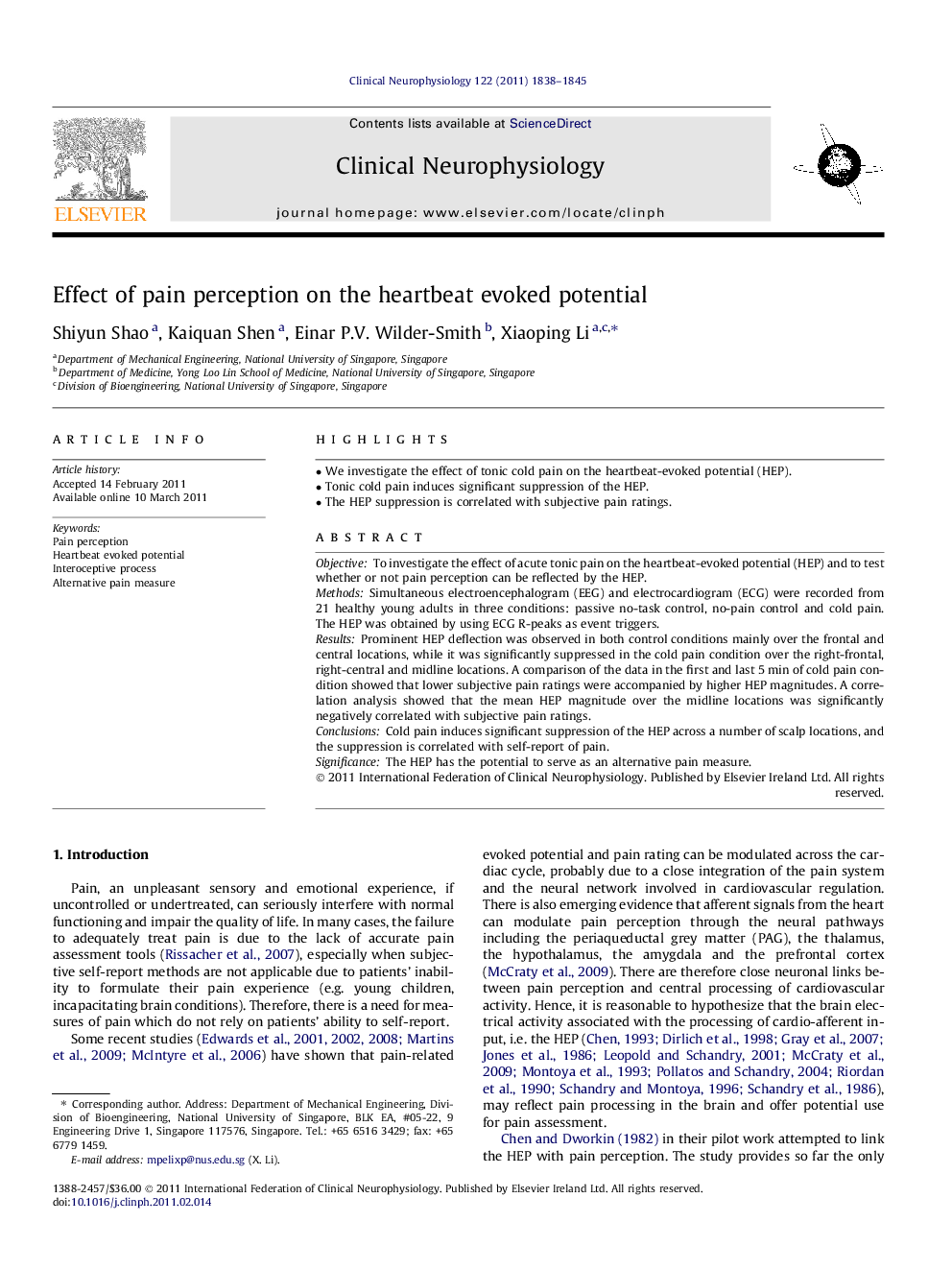| Article ID | Journal | Published Year | Pages | File Type |
|---|---|---|---|---|
| 3045794 | Clinical Neurophysiology | 2011 | 8 Pages |
ObjectiveTo investigate the effect of acute tonic pain on the heartbeat-evoked potential (HEP) and to test whether or not pain perception can be reflected by the HEP.MethodsSimultaneous electroencephalogram (EEG) and electrocardiogram (ECG) were recorded from 21 healthy young adults in three conditions: passive no-task control, no-pain control and cold pain. The HEP was obtained by using ECG R-peaks as event triggers.ResultsProminent HEP deflection was observed in both control conditions mainly over the frontal and central locations, while it was significantly suppressed in the cold pain condition over the right-frontal, right-central and midline locations. A comparison of the data in the first and last 5 min of cold pain condition showed that lower subjective pain ratings were accompanied by higher HEP magnitudes. A correlation analysis showed that the mean HEP magnitude over the midline locations was significantly negatively correlated with subjective pain ratings.ConclusionsCold pain induces significant suppression of the HEP across a number of scalp locations, and the suppression is correlated with self-report of pain.SignificanceThe HEP has the potential to serve as an alternative pain measure.
► We investigate the effect of tonic cold pain on the heartbeat-evoked potential (HEP). ► Tonic cold pain induces significant suppression of the HEP. ► The HEP suppression is correlated with subjective pain ratings.
